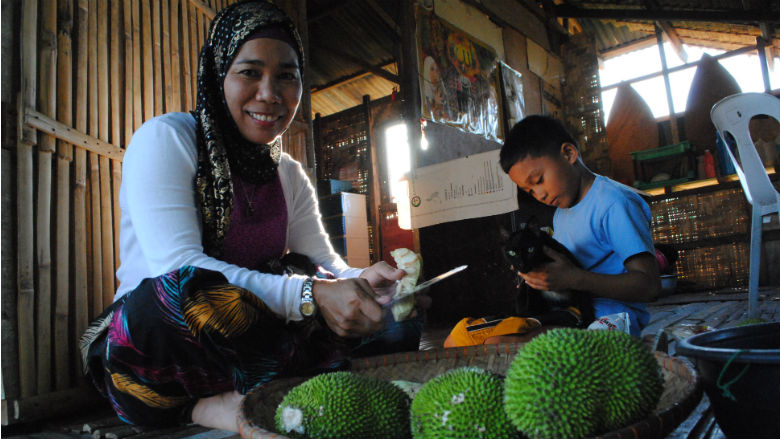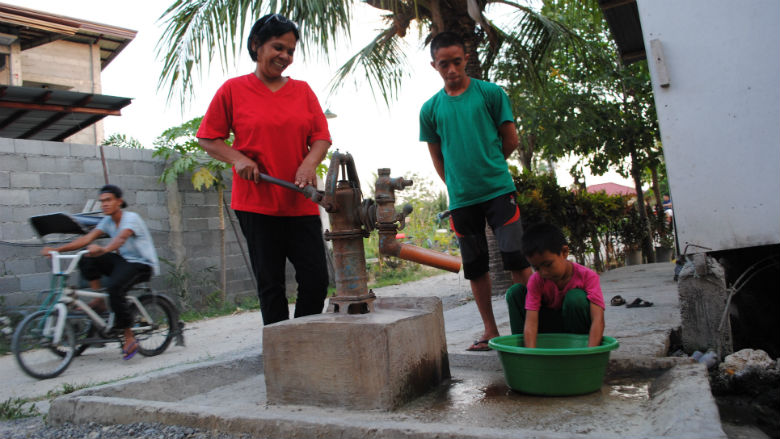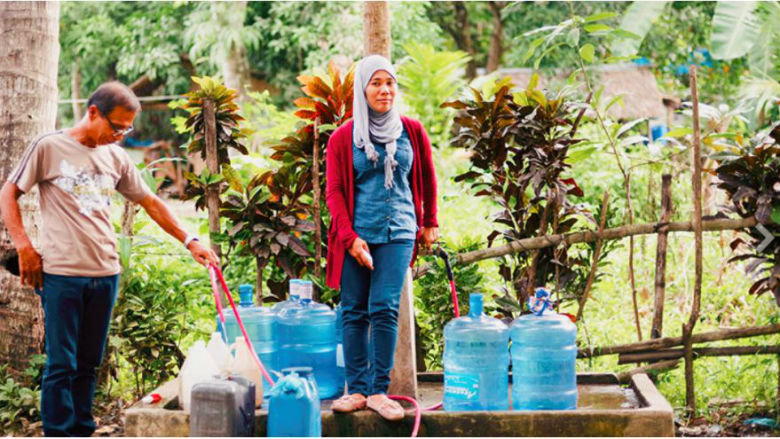Challenge
Conflict-affected communities in Mindanao are among the poorest in the Philippines suffering from poor infrastructure and lack of basic services (including education and health), weak local governance, and minimal private sector investment. Insecurity has been a major challenge. Frequent armed clashes driven by multiple and inter-related forms of conflict—insurgent groups, clan disputes, and quasi-ideological criminal banditry—have created severe economic dislocation and displacement of people. Armed conflict and poverty are inextricably linked. The Autonomous Region in Muslim Mindanao (ARMM), one of the most heavily conflict-affected regions, has poverty incidence of 52.9 percent, almost double the national average. Based on the peace deal with the Philippine government in 2012, the Moro Islamic Liberation Front (MILF) is expected to transition into a social and political movement. One of the key challenges for a successful transition is to help the MILF build development planning, budgeting, and public administration skills within its ranks.
Approach
The MTF works to enhance access to services and economic opportunities and build social cohesion while enhancing the capacity of local institutions in conflict-affected areas. It supports the Bangsamoro Development Agency (BDA), the development arm of the MILF. Based on a 2001 agreement between the Government of the Philippines and the MILF, the BDA is tasked to determine, lead, and manage relief, rehabilitation, and development projects in the conflict-affected areas. It’s a unique project that enables various stakeholders—government, the World Bank, and other development partners—to work with a revolutionary movement in delivering development results even before the signing of a final peace agreement.
With an enhanced role of women, the program helps the BDA to deliver community development and income-generating subprojects in communities. This enhances access to basic services such as clean water, roads and day care centers. BDA also works to strengthen community enterprises for employment and income generation. The community-based approach brings people from different groups—Muslims, Christians, and Indigenous Peoples—together for the common good, building social cohesion and trust. Over time the program has expanded beyond community development to assist the BDA to develop skills in macro-development planning.
A broad package of engagement complements the MTF promoting inclusive growth across Mindanao. For example, US$121 million for farm-to-market roads in Mindanao is included in the nation-wide PRDP while the National Community Driven Development Project is financing US$190 million for CDD activities in Mindanao.

Results
Results of April 2017:
- Over a decade, 650,000 people (52% of whom are women) in 284 villages have benefitted from 641 subprojects financed by the MTF. The subprojects have included water systems, community centers, sanitation facilities, access roads, post-harvest facilities, and farming and fishing equipment. Eighty-six percent of the beneficiaries say that the project reflected their needs.
- The subprojects have reduced travel time to market, increased agricultural productivity, reduced post-harvest costs, and increased access to basic services such as clean water. Beneficiaries of income-generating subprojects reported a 10 to 20 percent increase in incomes.
- About 330,383 women beneficiaries learned skills in community planning and implementation.
- 42 community enterprises in 11 villages have been trained in business development to generate sustainable employment and income.
- The Bangsamoro Development Agency has evolved from a small group of volunteers with no development experience to a leading development agency in Mindanao with 300 staff across seven regional management offices. BDA cooperates with multiple national and international partners, including JICA, WFP, and UNICEF.
- Bangsamoro Development Plan: the MTF provided technical assistance to help the BDA formulate the first comprehensive economic development blueprint prepared by a non-state armed group.
- Under the Alternative Learning System project, about 1,832 former combatants, housewives and out-of-school youth reported increased confidence because of improved reading, writing and numeracy abilities. These contributed to their more active participation in community meetings, stronger support for their children’s schoolwork, and better fair farm pricing transactions in city markets.
- The MTF has remained an important mechanism for consolidating peace and development in Mindanao. Beyond the impact of subprojects at the community level, the program’s ability to converge government and international support to empower Bangsamoro people and institutions to lead in community development seeks to lay the foundation for future sustainable and inclusive development in the Bangsamoro.
- The program fostered social cohesion by creating spaces for dialogue between Muslims, Christians, and Indigenous Peoples, as well as a diverse mix of local, regional, and national institutional actors. In many remote locations, the project provided the only opportunity for different groups to interact. The increased familiarity built mutual understanding—the basis of trust. Project policies also ensured active and meaningful participation of indigenous peoples and women, who are often otherwise marginalized from decision-making processes at the village level.
- The participative approach fostered social unity and built trust among stakeholders. In tri-people communities, minority groups shared better understanding and more harmonious relations with Muslims due to the consensus-building nature of CDD/CDR. While residents of remote communities—who had had little to no government access—disclosed growing trust towards government institutions at the end of the project due to the assistance provided by officials.
- The Bank’s technical and analytical support through the MTF and other engagements supporting peace and development in Mindanao have produced a significant body of literature that helps inform policy dialogues among various stakeholders. For instance, the Land Conflict study prepared for the Transitional Justice and Reconciliation Commission provides short- and medium-term recommendations that can help address land conflict in Mindanao. Also, the Public Expenditure Review in basic education for the Autonomous Region for Muslim Mindanao promoted dialogue between the national government and ARMM. This enabled ARMM to secure a larger budget for education.


